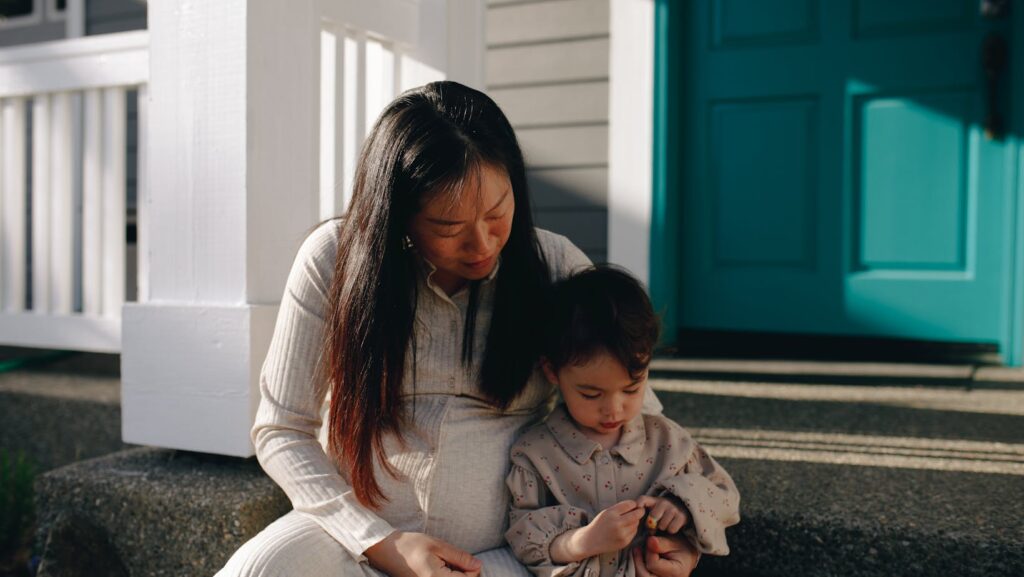Every parent has asked themselves at some point: When does parenting get easier? The answer to this question isn’t a simple one, as each stage of a child’s life brings its own unique challenges and rewards. When does parenting get easier? From sleepless nights with newborns to navigating the tricky teen years, parenting is a journey that constantly evolves.
When Does Parenting Get Easier
Infant Years: The Physical Demand
In the first few years of a child’s life, parents find that physical endurance becomes critical. It’s when feeding and sleeping patterns shift often, filled with late-night feedings and wake-up creams. You wearily trudge through this phase, balancing diaper changes, baby-proofing the house, and nursing a young life blooming with personality. Surprisingly, this seemingly exhausting period eases off as the child grows older, moving towards more self-dependency.
The Toddler Stage: The Quest for Independence
Following infancy, the toddler stage rings in another set of challenges. Characterized by a heightened quest for independence, children in this stage are often marked by the term ‘terrible twos.’ Here, tantrums become usual, and setting boundaries becomes necessary as curiosity paves way for discovery. Despite its accompanying stress, it’s a period of significant milestones; first steps, words, and the dawning of self-recognition.
School-Age Children: A Shift in Challenges
 Once a child enters the school-age phase, a different set of challenges rise. While some parents may sigh in relief as the physical demands taper off, they’re introduced to academic pressures and sociocultural influences. Sunday mornings won’t be about diaper changes but about homework and occasional school project. This period, right from kindergarten to late elementary age, is when emotional intelligence, academic skills, friendships, and other interpersonal skills begin to hold prominent space.
Once a child enters the school-age phase, a different set of challenges rise. While some parents may sigh in relief as the physical demands taper off, they’re introduced to academic pressures and sociocultural influences. Sunday mornings won’t be about diaper changes but about homework and occasional school project. This period, right from kindergarten to late elementary age, is when emotional intelligence, academic skills, friendships, and other interpersonal skills begin to hold prominent space.
Adolescence: Navigating the Emotional Rollercoaster
Stepping into the adolescent phase is akin to entering a new world for parents, bearing witness to emotional upheavals stemming from hormonal changes. Parents find themselves transferred from navigation of school projects to tricky topics like puberty, dating, identity issues, peer pressure, and possibly substance abuse. However, it’s during this stage that the child starts understanding the world in multitudes, independent of their primary caregivers.
When Does Parenting Truly Get Easier?
The Progressive Nature of Ease in Parenting
Parenting, undoubtedly, encompasses a spectrum of experiences, testing parental adaptability to welcome new shifts, changes, and challenges with each developmental stage. Evidence suggests that parenting eases over time, not from reduction in challenges, but progression in parental skills and understanding.
 Key factors influencing the progressive nature of ease in parenting include:
Key factors influencing the progressive nature of ease in parenting include:
- Mastery of skills: As parents gain expertise through time and experience, they perceive situations as less daunting. For example, first-time parents may find changing diapers intimidating, but with repeated practice, it integrates into their routine.
- Resilience: Parenting, while rewarding, elicits vulnerabilities. Over time, parents become stronger, developing coping mechanisms to manage stressors effectively.
- Adaptation: Evolving with their children’s growth, parents adjust their parenting styles to suit new developmental stages.
The Perception of Ease Over Time
 Comprehending when parenting gets easier involves evaluating perceived ease versus actual ease over time. Throughout the parenting journey, perception of ease dynamically changes, influenced by parental self-efficacy, child’s development, and external support systems.
Comprehending when parenting gets easier involves evaluating perceived ease versus actual ease over time. Throughout the parenting journey, perception of ease dynamically changes, influenced by parental self-efficacy, child’s development, and external support systems.
Aspects contributing to the perception of ease include:
- Self-Efficacy: Parents’ belief in their ability to manage parenting-related tasks impacts perceived ease. Building self-efficacy can make one feel more confident and competent in their parenting skills.
- Child’s Development: As children develop motor and cognitive skills, they gain independence, which eases the parents’ workload. For example, when a child starts school, parents might perceive an increase in personal time.
- Social Support: Effective parenting requires support from family, friends, and the wider society. Having a robust support system can alleviate parental pressures, promoting perceived ease.
What You Need To Know
Parenting’s not a one-size-fits-all journey. It’s a continuous evolution, a dance between the challenges and joys that come with raising children. when does parenting get easier isn’t defined by a specific age or stage, but by the growth and adaptation of the parents themselves. As they master skills, build resilience, and adapt to their child’s changing needs, they find their stride.
